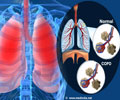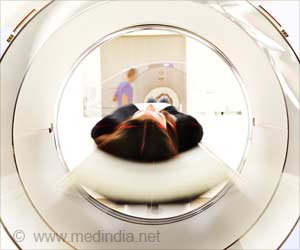In pediatric patients having laryngotracheal stenosis (LTS), the airway obstruction can be effectively opened by using a biodegradable magnesium-alloy stent.

‘In pediatric patients having laryngotracheal stenosis (LTS), the airway obstruction can be effectively opened by using a biodegradable magnesium-alloy stent. These stents showed low degradation rate, normal healing, and no adverse effects.’
Read More..




Stents are great at holding the airway open and simultaneously allowing the trachea to continue growing. However, they can move around or can even cause damage when they are removed. A new research for the first time has shown that the use of stents can be improved by demonstrating the successful use of a completely biodegradable magnesium-alloy tracheal stent that avoids some of these risks.Read More..
The research led by University of Pittsburgh is published in the journal Communications Biology.
Prashant N. Kumta, Edward R. Weidlein Chair Professor of bioengineering at the Swanson School of Engineering said, “Using commercial non-biodegradable metal or silicone based tracheal stents has a risk of severe complications and doesn't achieve optimal clinical outcomes, even in adults. Using advanced biomaterials could offer a less invasive, and more successful, treatment option.”
The study showed that the balloon-expandable ultra-high ductility (UHD) biodegradable magnesium stent performed better than the currently used metallic non-biodegradable stents in both in lab testing and in rabbit models.
The stent was able to keep the airway open over time, showed low degradation rate and displayed normal healing and no adverse effects.
Advertisement
Source-Medindia










